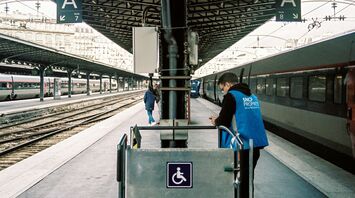Major Arson Attacks Cause Travel Chaos Ahead of Paris Olympics

A series of well-coordinated arson attacks has thrown France's rail network into disarray just hours before the opening ceremony of the Paris Olympics. This deliberate act of sabotage, targeting key high-speed train lines, has affected more than 800,000 travelers and raised significant security concerns as the world turns its attention to Paris.
The attacks focused on signal boxes along three of France's most critical high-speed train lines. These lines are essential for transporting both passengers and athletes to the Olympic events. The French authorities have labeled this an act of sabotage, aiming to cripple the nation's transportation infrastructure during a time of heightened international focus. A fourth attempt in the south of France was thwarted by vigilant rail workers who managed to scare off the suspects.
Two out of four trains carrying athletes to the opening ceremony were halted, forcing some athletes to turn back due to the closures. The incident left many stranded, including Kuto L. Fipo, who was stuck at Mon's train station with her two young children for several hours. She described the experience as stressful and frightening.
In response to these attacks, French authorities have increased security measures, including the closure of 90 miles of airspace over Paris for the duration of the opening ceremony. The ceremony itself, for the first time in Olympic history, was held outside a stadium, along the River Seine. This added an extra layer of complexity to the security operations, with 75,000 personnel deployed to ensure safety.
Opening Ceremony Amidst Chaos
Despite the travel disruptions, the opening ceremony proceeded as planned. Athletes sailed down the River Seine on a flotilla of 85 boats, navigating nearly four miles westward through torrential rain. The procession passed iconic Parisian landmarks, including Notre-Dame Cathedral, the Louvre, and the Eiffel Tower, culminating in a spectacular display of unity and resilience.
Ongoing Investigations and Repairs
Authorities have yet to identify the perpetrators or their motives. Engineers are working around the clock to repair the damaged rail infrastructure, but disruptions are expected to continue through the weekend. This incident has highlighted the vulnerabilities in France's transportation network and underscored the challenges of securing such a high-profile international event.
As investigations continue, the world watches closely, hoping for swift resolution and restored stability. This episode serves as a stark reminder of the importance of vigilance and preparedness in the face of coordinated attacks.



















